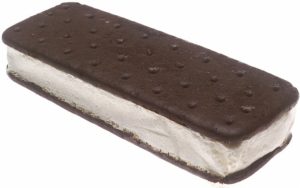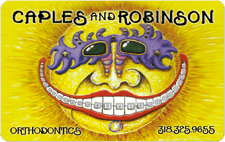Orthodontist in Monroe LA
 Braces are a common rite of passage for many people, and, thankfully, they have become more comfortable over the years. People generally have few problems with their braces outside of the expected minor discomfort. However, depending on your lifestyle, there are potential risks to consider. Below are some common issues that you might experience and tips on how to avoid them.
Braces are a common rite of passage for many people, and, thankfully, they have become more comfortable over the years. People generally have few problems with their braces outside of the expected minor discomfort. However, depending on your lifestyle, there are potential risks to consider. Below are some common issues that you might experience and tips on how to avoid them.
Mouth Injuries
Most people know the importance of wearing a mouth guard when participating in high impact sports such as football or hockey. However, when you have braces, even a fall from running can pose a threat to your lips. Ask our doctor about getting a mouthguard for all physical activity as it will act as a safeguard and protect your lips from potential damage.
Increased Risk of Tooth Decay
When you have braces, it’s important to still practice good oral hygiene. Since flossing and careful brushing require greater effort, it can be easy to slack off in these areas. However, doing so will only further complicate your treatment and damage your teeth. There are plenty of tools at your disposal designed to help you clean around braces, from pre-threaded floss to pressurized water tools. If you’re having difficulty adapting your regular routine, ask the orthodontist about different options that can help.
Activity-Related Issues
There are some inconveniences that can arise when trying to add braces into your day-to-day routine. Certain musicians for example might experience discomfort when getting used to playing with braces. People who sing or do extensive public speaking might have some minor issues with pronunciation or discomfort caused by your lips rubbing against the metal. Most of these issues will fix themselves as you get used to living with braces. However if the discomfort persists, ask your orthodontist about the different relief options you have.
Most individuals who have braces do not have any long-term complications throughout their treatment. However, there are smaller issues that can arise when you are first adjusting to your braces that can become a big annoyance if left unaddressed. By knowing what to expect and raising any concerns or issues you might have with your orthodontist, you will be much more prepared to tackle these small issues. Contact our office today to schedule your next visit.
2210 Forsythe Ave.
Monroe, LA 71201


 If the idea of biting into an ice cream sandwich makes you cringe, you may be one of the millions of people who suffer from sensitive teeth. This is often caused by movement of fluid in the dentin – the soft inner tissue beneath the enamel of your tooth. This motion irritates the tooth nerve, creating a tingling sensation and sometimes pain.
If the idea of biting into an ice cream sandwich makes you cringe, you may be one of the millions of people who suffer from sensitive teeth. This is often caused by movement of fluid in the dentin – the soft inner tissue beneath the enamel of your tooth. This motion irritates the tooth nerve, creating a tingling sensation and sometimes pain. An injury to your mouth can be a painful, expensive experience. For athletes, mouth and tooth injuries pose a very real risk. Mouthguards are an excellent tool for protecting your mouth from injury and harm. Our team can help you find a solution that protects your teeth.
An injury to your mouth can be a painful, expensive experience. For athletes, mouth and tooth injuries pose a very real risk. Mouthguards are an excellent tool for protecting your mouth from injury and harm. Our team can help you find a solution that protects your teeth.



